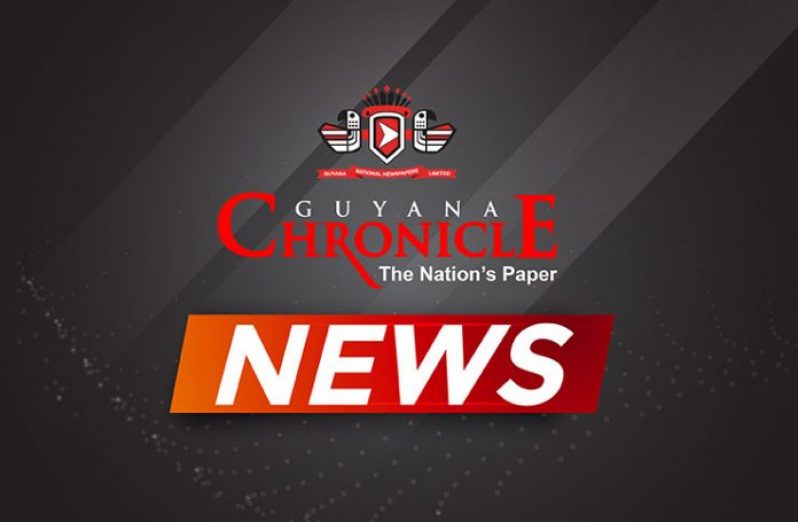THE PPP/C said it is clear that Chief Elections Officer Keith Lowenfield is subject to the direction and control of the Commission at all material times, and that he has failed to do so.
“That the Commission enjoys an overarching power over the entire electoral process and its officers, including the Chief Election Officer, to rectify any wrong or illegality or irregularity committed is expressed in both Article 162(1)(b) of the Constitution and Section 22 of the Election Laws Amendment Act,” the PPP/C said Friday in a press release.
The Party has noted that, importantly, Article 162(1)(b) clearly states: “The Election Commission shall issue such instructions and take such action as appear to it necessary or expedient to ensure impartiality, fairness and compliance with the provisions of this Constitution or of any Act of Parliament on the part of persons exercising powers or performing duties connected with or relating to the matters aforesaid (i.e. the administrative conduct of elections),” and that “Accordingly, Mr. Lowenfield’s position is simply untenable. We reiterate that he is part of a larger conspiracy to commit elections fraud. No law gives Mr. Lowenfield the power to do what he attempted do, a fact he well knows. Mr. Lowenfield is not a constitutional officer holder as he claims in his release, since the office of the Chief Election Officer is not created by the constitution. It is created by the Representation of the People Act.”
It noted, too, that the Chief Election Officer is hired by the Commission. “He is therefore a statutory contractual officer of the Commission and his mandate is to only act upon the directions of the Commission. He has no power to invalidate a single vote, moreover 115,000 votes. Even the Commission has no power to invalidate votes,” the release said.
The party said that such a position is the preserve of the High Court moved by an election petition after the declaration of the final results upon the presentation of evidence. “Moreover, his reliance on the Court of Appeal’s judgment is also conveniently misplaced in furtherance of his scheme to defraud the electorate. At no point did the Court of Appeal rule that the Chief Election Officer could unilaterally determine the valid votes cast in the election. The Court of Appeal certainly did not empower Mr. Lowenfield to disenfranchise voters,” the PPP said.
“Indeed as much as we have an issue with the Court of Appeal’s ruling, to their credit, Justice Reynolds resided the power in the Commission, not the Chief Election Officer, to determine final and credible results. In any event the Court of Appeal’s decision was stayed and was not in effect at the time,” the release said.
The party said that on those bases alone Lowenfield’s attempt to hide behind the Court of Appeal’s judgment in committing electoral fraud must be discarded. “APNU/AFC is clearly part of Mr. Lowenfield’s scheme to commit these criminal acts. The Attorney General, who ought to be an independent and impartial constitutional officer holder in the current proceedings at the CCJ, as part of that conspiracy, attempted to justify Mr. Lowenfield’s conduct at yesterday’s CCJ hearing, showcasing to the world the conspiracy at work,” the party said.
It said that this latest incident “is merely only a part of APNU/AFC, and now their surrogate Lowenfield’s sordid history, in attempting to justify their actions under the colour of the law and constitutionality.”
On Friday, Lowenfield called on his critics to re-read the portion of the Constitution of Guyana which speaks to his responsibilities, and, this time, in its entirety. “I have noted the contents of an article published in the Friday, June 26, 2020 edition of the Stabroek News under the caption, ‘Lowenfield report seen as clear act of insubordination’. The source who articulated that position seems to have only read the Constitution in part, conveniently, and failed to recognise the sections that dictates the functions of the Chief Election Officer. While the Commission makes certain policy decisions and provides guidance to the Chief Election Officer for implementation by the Secretariat, I have to execute my duties as a Constitutional Officer, particularly in the conduct of Elections,” the CEO stated.
He added: “The contents of the Stabroek News article suggests that the CEO must only act as the Commission instructs and flout the Constitutional requirements. At all times, I have acted in conformity with the laws and therefore my action cannot be ‘seen as clear act of insubordination’ as articulated in the ill-informed Stabroek News article.”
Utilising valid votes, as ordered by the Court of Appeal, the CEO, on June 23, submitted his Election Report which saw the APNU+AFC securing 71,825 valid votes and the PPP/C, 166, 343 valid votes. In his Report to the Chairman of GECOM, Justice (Ret’d) Claudette Singh, Lowenfield stated: “I have taken note of the guidance of the Court of Appeal in Eslyn David v Chief Elections Officer et al in the preparation of my Report under Section 96 of the Representation of the People Act and providing advice as required by Article 177 (2) (b) of the Constitution of the Cooperative Republic of Guyana.” The upset over his report comes as the PPP/C is contending that the ballots as counted during the first phase of the recount process should be declared and any alleged or evident irregularities or anomalies should be taken up by election petition after the declaration. On the other hand, the governing APNU+AFC coalition is contending that the Order which paved the way for the national recount mandated that the ballots issued be reconciled with ballots cast based on a number of statutory documents. The absence of many of such documents during the physical count has resulted in the party’s argument that over 200,000 ballots have been compromised and cannot be validated.



.jpg)








